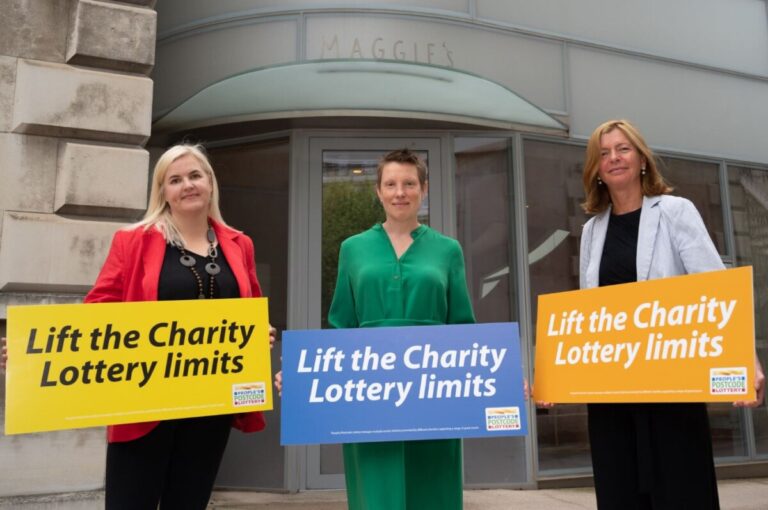Government agrees to talks on charity lottery limits

The government has agreed to talks on charity lottery limits following an open letter by the leaders of 100 British charities calling for a removal of the current fundraising limit.
Charity lotteries have a regulated annual sales ceiling of £50 million and are the only type of charity fundraising to face this restriction. There are also no such curbs on the National Lottery.
In an open letter to Culture Secretary Michelle Donelan MP, the charities urge the Government to remove the fundraising limit, and say that the limits are depriving them of millions of pounds in much needed funding.
Advertisement
The Minister responsible for gambling, Paul Scully MP, has now agreed to meet charity lottery operators to discuss reforms. He has also heard directly from charity leaders at Westminster.
The charities involved include British Red Cross, Barnardo’s, The Royal Voluntary Service, Maggie’s, Cat’s Protection, WWF, The Wildlife Trusts, Lord’s Taverners, Breast Cancer Now, Magic Breakfast and homelessness charity Crisis.
The letter to the Government points out that the simple change in the law will come at zero cost to the Treasury. There is growing cross-party support for the removal of the limit, but no decision has yet been taken.
Catherine Johnstone, Chief Executive of Royal Voluntary Service, said:
“The public will rightly be surprised that there is any sort of limit on charity fundraising, but in the middle of a cost-of-living crisis, having laws in place which reduce and restrict the funds available to charities is surely counter-productive. Because of the current charity sales limits the funding RVS receives from charity lotteries cannot increase – which is unhelpful when our services are in ever greater demand.”
Laura Lee, Chief Executive of Maggie’s, added:
“Charity lotteries have been transformational for so many charities. That has certainly been the case for Maggie’s and it therefore makes no sense that they are stymied by Government red tape.
“In the current tough times growing the contribution charity lotteries make to our society will bring real benefits to more communities and causes in desperate need of this support.”
In the letter the charity leaders say they are facing a difficult fundraising environment and add: “In an economic climate where many of the charities we represent are having to respond to increasing charitable needs and where charity fundraising is increasingly challenging, we believe it is time to get rid of these fundraising limits once and for all.”
Clara Govier, Managing Director of People’s Postcode Lottery, Britain’s biggest charity lottery operator, said:
“Our players make a huge difference to charities, large and small, right across Britain, however, we are forced to operate in an overly bureaucratic way because of the charity lottery sales limit. The limit has no benefit at all and, in many cases, restricts the funding which can be given to charities.
“With over 100 national charities calling on the Government to remove the limit it is time for Ministers to act and remove this excessive red tape immediately. It is harmful and affecting lives and communities. There is no reason to delay.”
The sales limits also mean some charities cannot see any increase in their funds from charity lotteries over time, despite increasing ticket sales.
The charities point out that: “31 charities supported by People’s Postcode Lottery players are funded from Trusts which are already up against the charity lottery annual sales limit of £50 million. This means that despite inflation, these charities can see no further increase in the funds they receive until the sales limits change.”
The current £50mn limitation came into effect in 2020, replacing the former £10mn annual sales limit.




